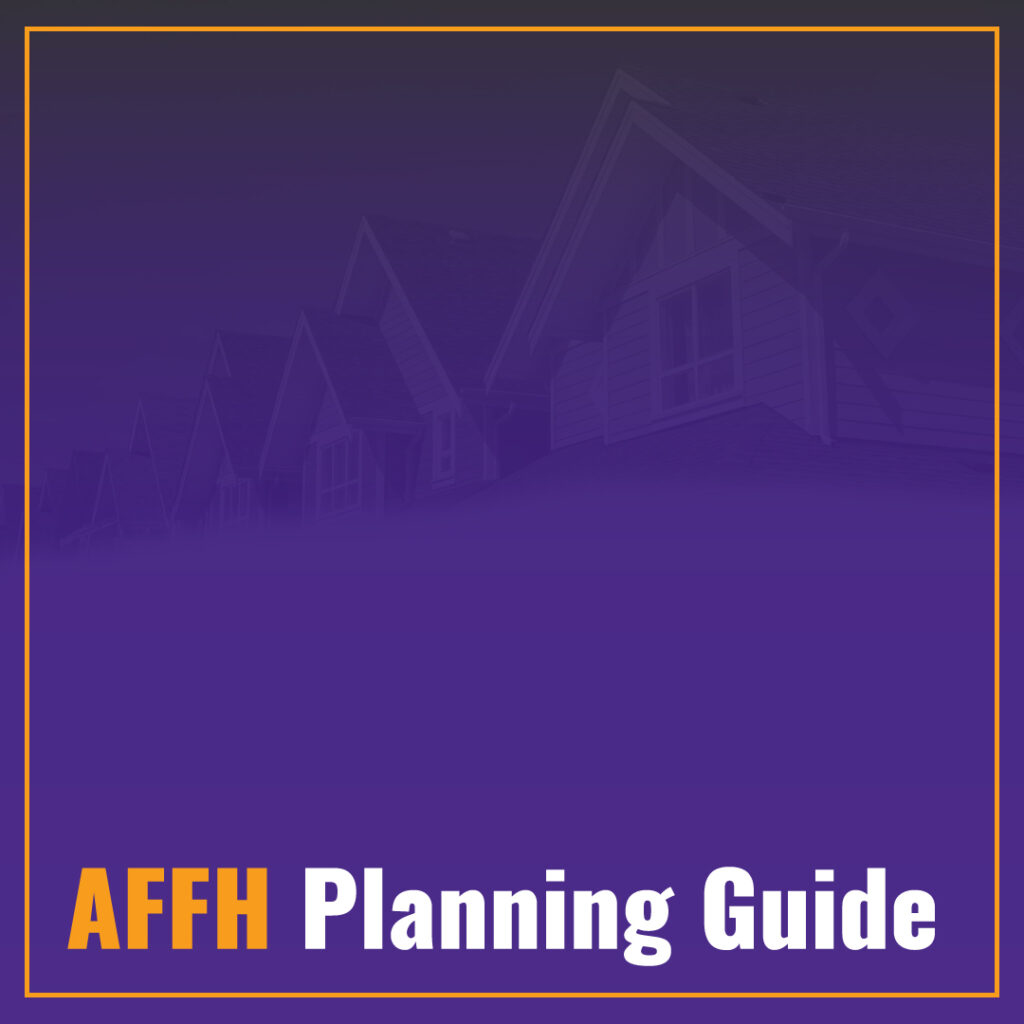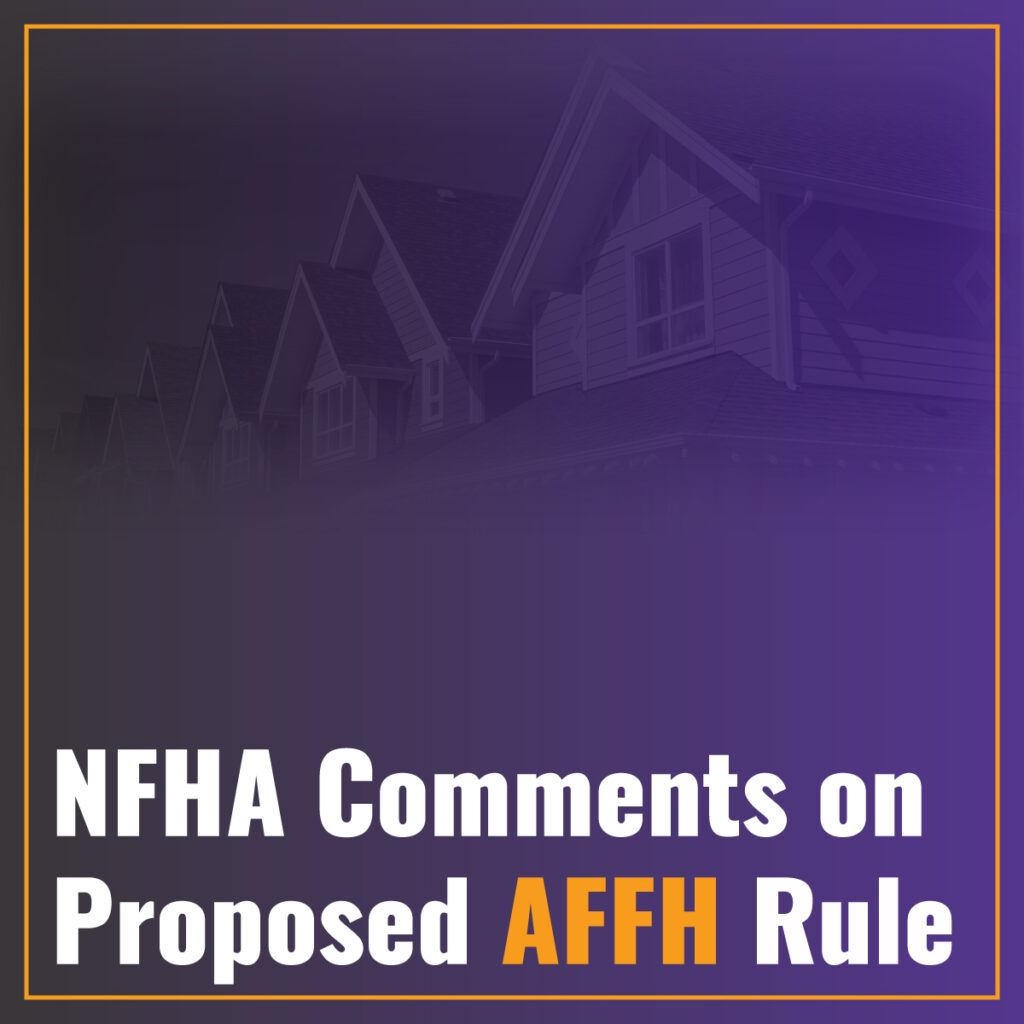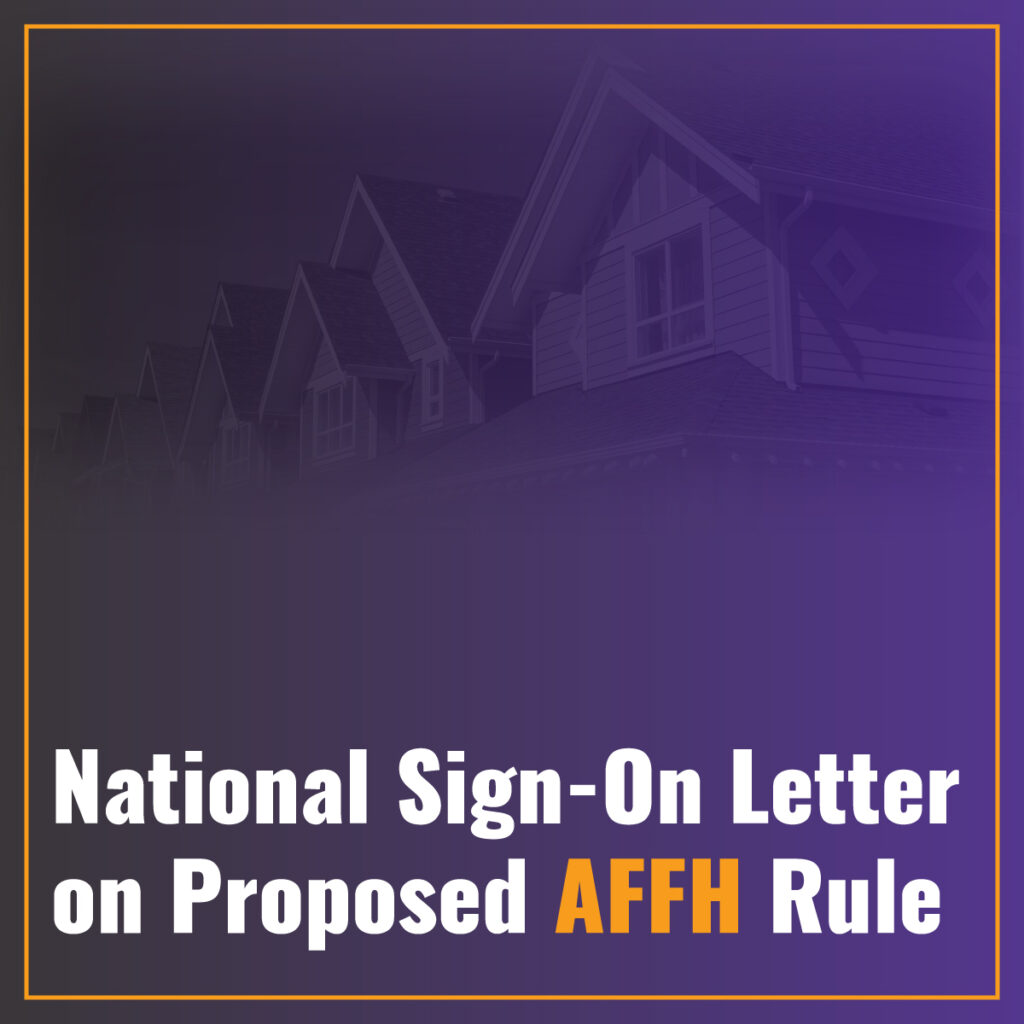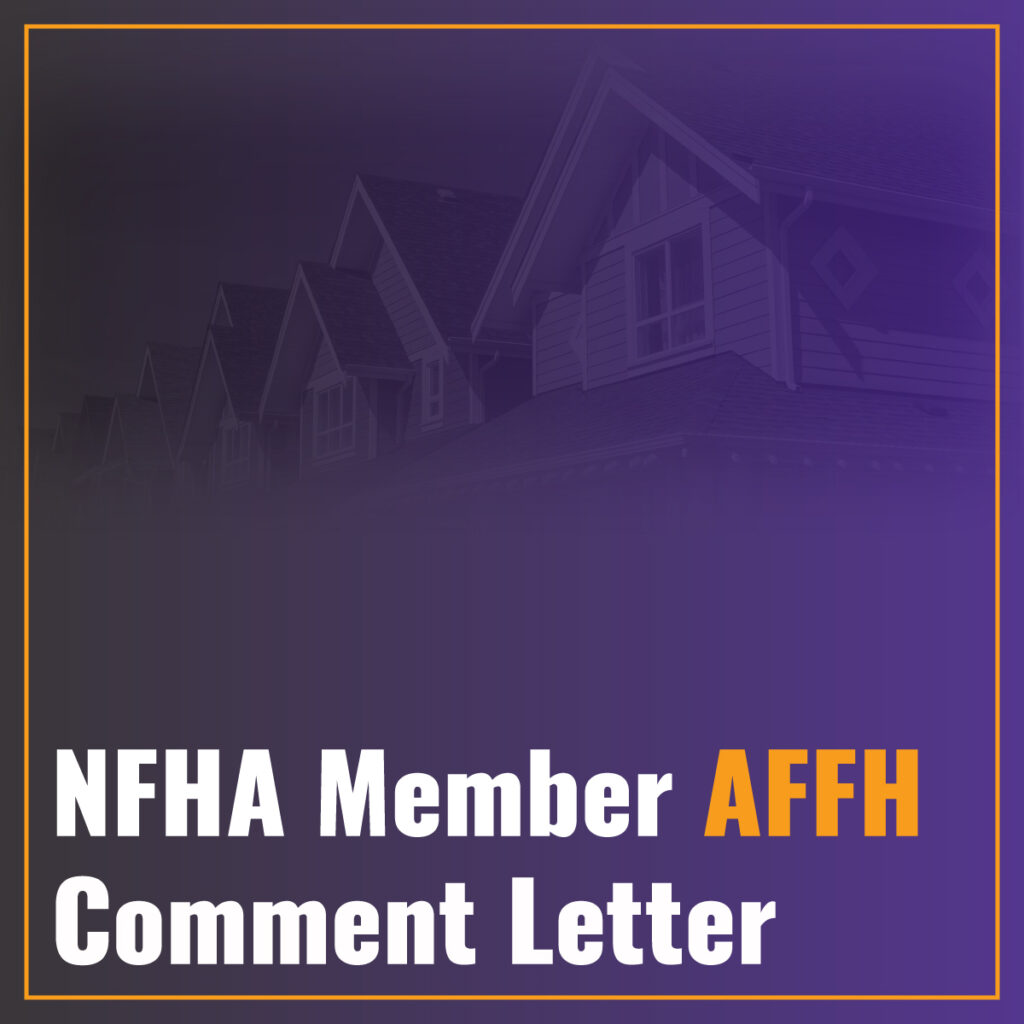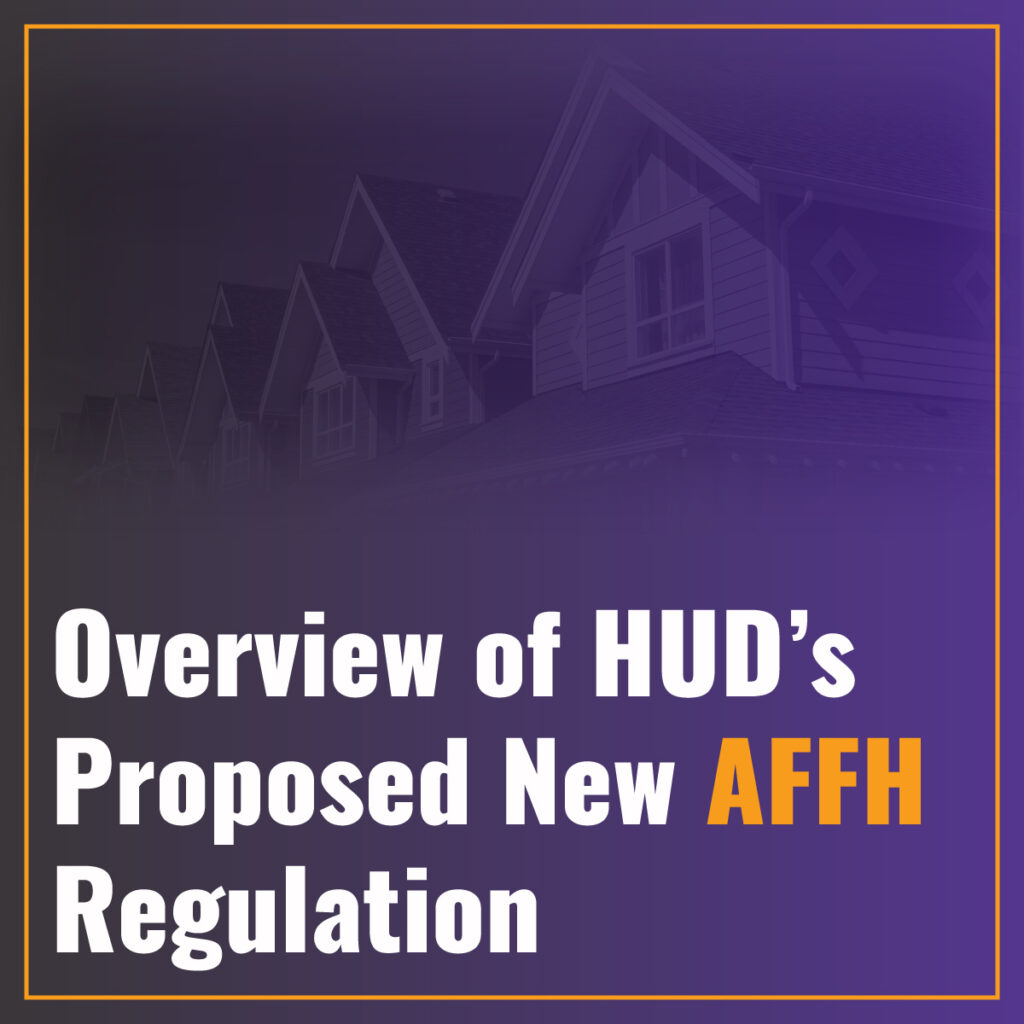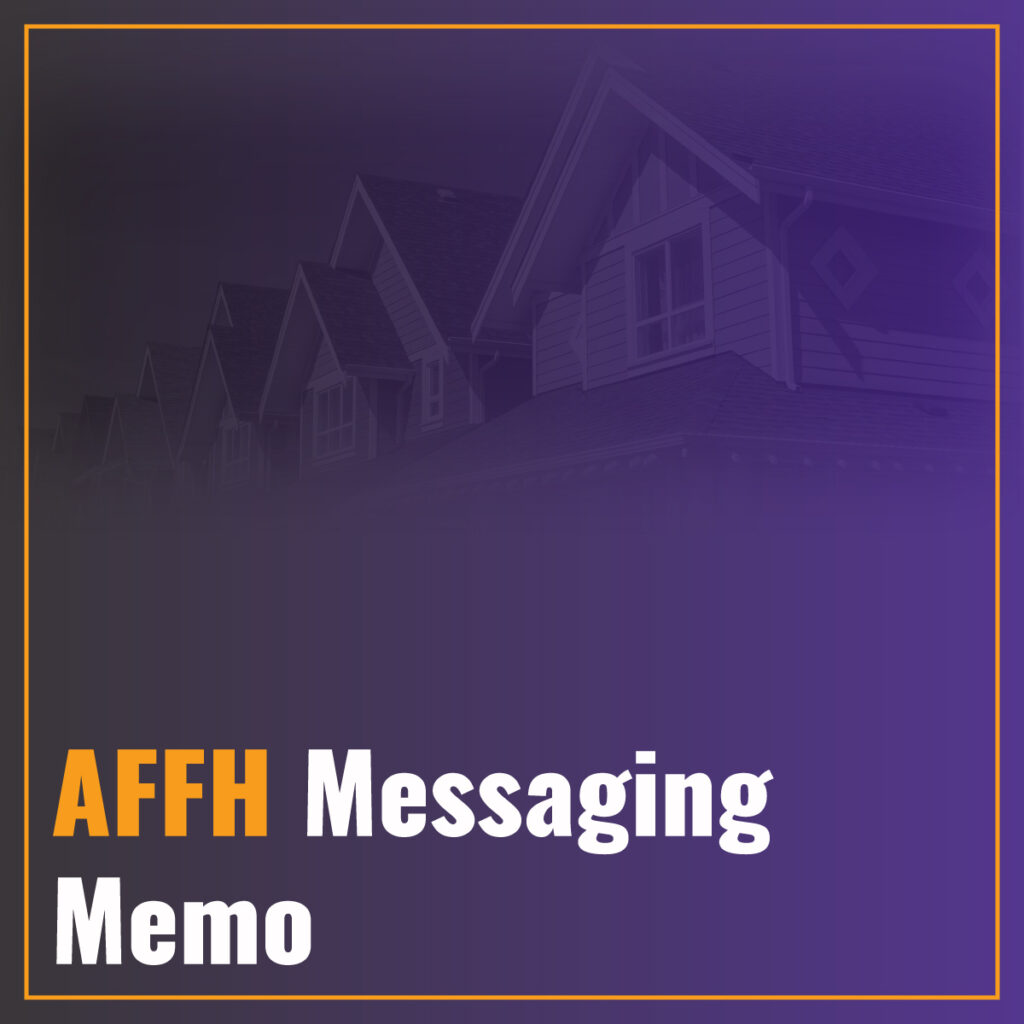Our Work
Affirmatively Furthering Fair Housing

Expanding Opportunity and Creating Inclusive and Thriving Communities for All

What Is AFFH?
Imagine a society in which everyone can live in a neighborhood with ample affordable and accessible housing options, fresh air, clean water, good public transportation, living wage jobs, quality healthcare, healthy foods, and safe, affordable credit. Visualize the U.S. as a nation where every child can attend a well-resourced and high-performing school. That is what Affirmatively Furthering Fair Housing is all about – expanding opportunity and creating communities where we all can thrive.
The Affirmatively Furthering Fair Housing (AFFH) rule was designed to help communities identify and overcome patterns of segregation, increase housing choice, and promote inclusive growth. It became the law after Dr. King’s horrific assassination to honor his life’s sacrifices. Under the 1968 Fair Housing Act, all federal housing grantees are legally required to take meaningful steps to advance fair housing — not just avoid discrimination.
Where Things Stand Today
In March 2025, HUD withdrew the 2023 proposed AFFH rule and replaced it with a weakened self-certification model. This step significantly undermines accountability and leaves communities more vulnerable to housing inequality.
“By dismantling the Affirmatively Furthering Fair Housing framework, HUD has stripped away critical tools that communities need to combat segregation and expand housing choice. This action runs directly counter to the Fair Housing Act’s core mandate and threatens to deepen inequities for families across the country.”
Why It Matters
Without a strong AFFH rule:
- Communities lose the ability to proactively address segregation and neighborhood exclusion.
- A key tool for reforming exclusionary zoning ordinances is weakened undermining efforts to increase the supply of affordable housing units during the nation’s fair and affordable housing crisis.
- Families face continued barriers to safe, decent, accessible, and affordable housing.
- HUD’s self-certification approach provides little accountability, inviting greater inequality.
Read our joint advocacy statement, May 2025
“We strongly urge HUD to withdraw its watered-down AFFH rule and reinstate meaningful standards. Fair housing is not optional. It is a civil right.”
NFHA’s Role
NFHA has led national advocacy to restore a strong AFFH rule. In partnership with civil rights, consumer, and housing policy organizations, NFHA is pressing HUD to reinstate standards that truly fulfill the promise of the Fair Housing Act – inclusive and thriving communities for all.
Background Resources
Congress’ passage of the Fair Housing Act in 1968 was a promise to end discrimination in housing based on race, national origin and certain other characteristics, and to eliminate racial segregation — which government itself had done so much to create and sustain — and undo the lasting harms it caused. Congress gave the Department of Housing and Urban Development (HUD) the job of carrying out this promise. It made HUD responsible for protecting the rights of individuals seeking homes. It also told HUD to make sure that the cities, counties, states, public housing authorities, and other entities it funds do not discriminate and instead take active steps to tackle segregation and housing inequality. This important protection is known as Affirmatively Furthering Fair Housing (AFFH).
It is important to note that while HUD plays a primary role in fostering AFFH throughout the nation, it is not the only federal agency that carries this obligation. The law expressly states that all federal executive departments and agencies that handle funds, rulemaking, enforcement actions, or other activities related to housing and urban development must administer their programs and activities in a way that affirmatively furthers fair housing. For this reason, the Federal Housing Finance Agency, Department of Transportation, and other federal agencies have entered into Memorandums of Understanding with HUD and committed to working collaboratively with HUD to fulfill their AFFH requirements.
What You Can Do Now
Learn: Stay informed with NFHA policy updates.
Take Action: Reach out to your member of Congress and urge them to ensure the Fair Housing Act is not weakened.
Support: Donate to strengthen our advocacy.
AFFH in the News
Quick Facts
AFFH is a provision of the 1968 Fair Housing Act directing HUD to make sure neither it nor the cities, counties, states, and public housing agencies it funds, discriminate in their housing and community development programs and that those programs actively work to eliminate the barriers and disparities caused by residential segregation. It also requires any federal entity involved in housing or urban development activities to affirmatively further fair housing. Here is how HUD defines AFFH:
Affirmatively furthering fair housing means taking meaningful actions, in addition to combating discrimination, that overcome patterns of segregation and foster inclusive communities free from barriers that restrict access to opportunity based on protected characteristics. Specifically, affirmatively furthering fair housing means taking meaningful actions that, taken together, address significant disparities in housing needs and in access to opportunity, replacing segregated living patterns with truly integrated and balanced living patterns, transforming racially or ethnically concentrated areas of poverty into areas of opportunity, and fostering and maintaining compliance with civil rights and fair housing laws. The duty to affirmatively further fair housing extends to all of a program participant’s activities and programs relating to housing and urban development.
Since 1995, HUD has had regulations implementing AFFH, which have been amended over time (See the timeline below for more details). Currently, HUD has in place a temporary regulation (called an Interim Final Rule) that includes the definition of AFFH and requirements for its grantees (called “program participants”) to certify that they are in compliance with their AFFH obligations.
The Fair Housing Act, passed in 1968, just seven days after the assassination of Dr. Martin Luther King, Jr., seeks to end housing discrimination and promote diverse, inclusive communities by prohibiting discrimination against people seeking to rent or buy a home, obtain a mortgage, or seek housing assistance.
To learn more about the Fair Housing Act, its passage, and connection to Dr. Martin Luther King, Jr., click below to watch the award-winning short film “Seven Days.”

